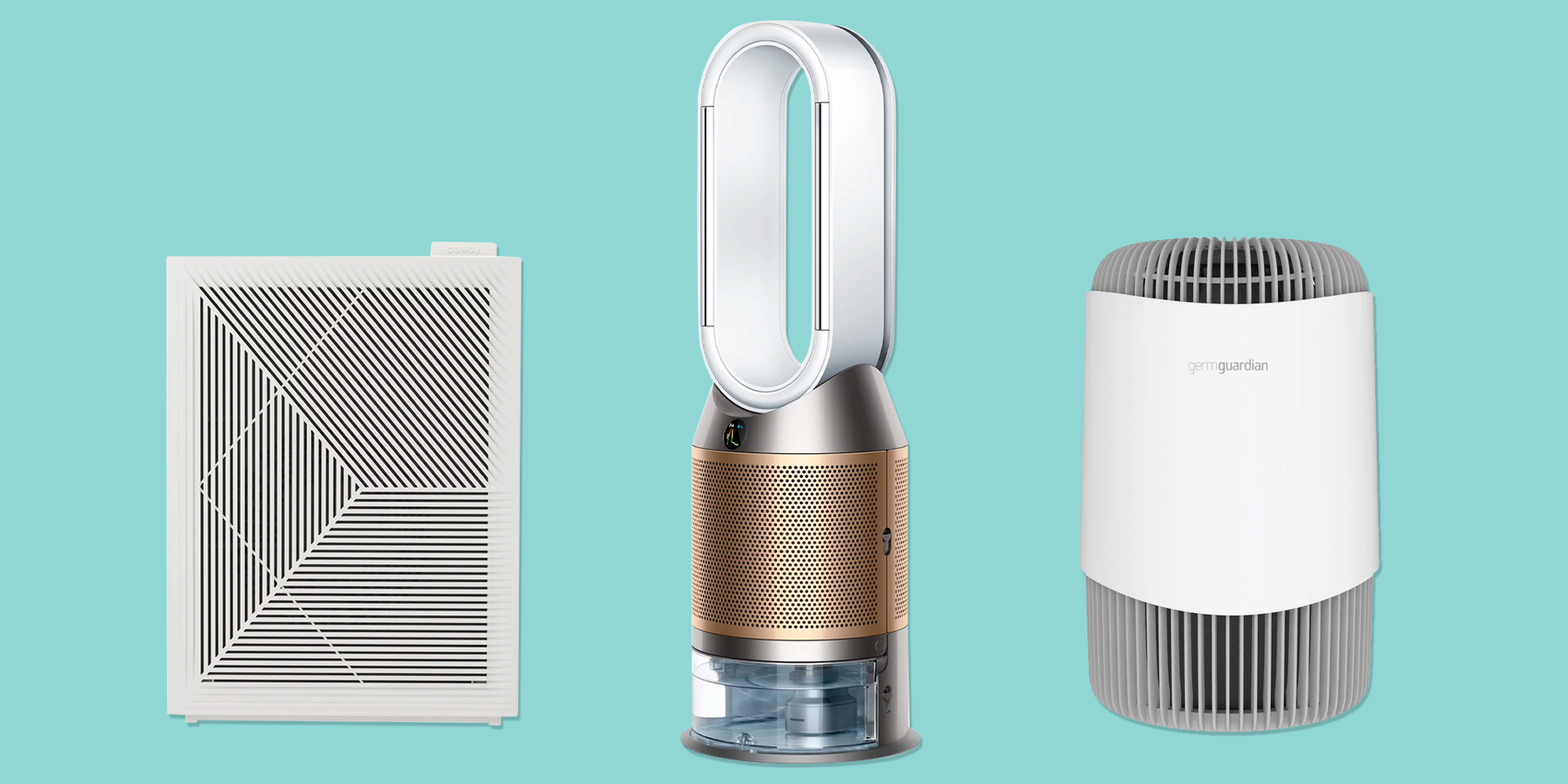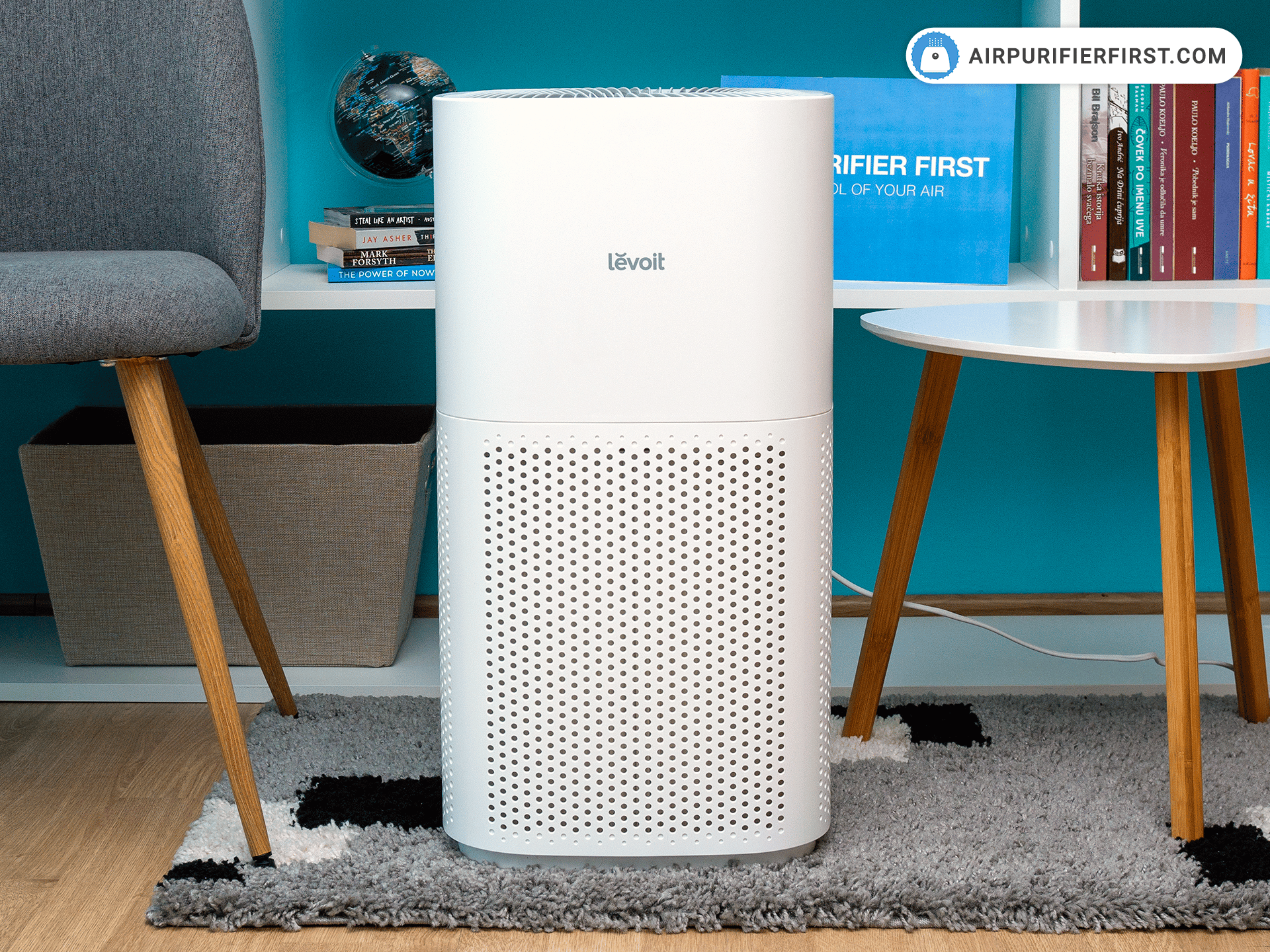What Air Purifier is Best for Smoke: Ultimate Guide

Finding the best air purifier for smoke can be challenging. Smoke particles can be harmful, so it’s crucial to choose the right one.
Smoke from wildfires, cooking, or cigarettes can linger in the air, affecting your health. An air purifier can help clear the air, making your home safer. But with so many options available, how do you pick the best one for smoke?
In this blog, we will explore the key features to look for in an air purifier. We will also guide you on what makes an air purifier effective against smoke. By the end, you will have a clearer idea of which air purifier is best for your needs. Let’s dive in and breathe easier.

Credit: www.goodhousekeeping.com
Introduction To Air Purifiers For Smoke
Smoke can fill your home quickly. It can come from wildfires, cooking, or tobacco. Smoke particles are tiny and can harm your health. An air purifier can help remove these particles. But which air purifier is best for smoke? Let’s explore the options.
Importance Of Air Purifiers
Air purifiers clean the air in your home. They remove dust, pollen, and smoke. This can make the air safer to breathe. Clean air is important for everyone, especially children and the elderly. Smoke particles can be very harmful. Removing them can improve your quality of life.
Impact Of Smoke On Health
Smoke can cause many health problems. It can irritate your eyes, nose, and throat. Long-term exposure can lead to serious issues. These include heart disease and lung cancer. Children and the elderly are more at risk. An air purifier can help reduce these risks. It can remove harmful particles from the air. This keeps your home safe and healthy.

Credit: www.airpurifierfirst.com
Types Of Air Purifiers
Choosing the right air purifier for smoke can be tough. There are several types, each with its own strengths. Here, we’ll explore the most common types of air purifiers.
Hepa Filters
HEPA filters are one of the most effective types for smoke. They can capture particles as small as 0.3 microns. This includes smoke, dust, and pollen. HEPA stands for High Efficiency Particulate Air. These filters are great for people with allergies. They are also good for anyone who wants cleaner air.
Activated Carbon Filters
Activated carbon filters are excellent at removing smoke odors. They use a bed of activated carbon to trap gases and odors. These filters work through adsorption, where pollutants stick to the carbon. They are often used alongside HEPA filters for better results. Activated carbon filters are also useful for removing VOCs (volatile organic compounds).
Ionic Air Purifiers
Ionic air purifiers use charged ions to clean the air. They release negative ions, which attach to pollutants. These particles then fall to the ground or stick to surfaces. Ionic purifiers are quiet and energy-efficient. However, they may produce ozone, which can be harmful in large amounts.
Uv Light Purifiers
UV light purifiers use ultraviolet light to kill germs and bacteria. They are good for sterilizing the air. While they do not remove particles, they can reduce mold and viruses. UV light purifiers are often used in hospitals. They are best when combined with HEPA or carbon filters.
| Type | Best For | Considerations |
|---|---|---|
| HEPA Filters | Removing particles | Needs regular replacement |
| Activated Carbon Filters | Removing odors | Works best with HEPA |
| Ionic Air Purifiers | Energy efficiency | May produce ozone |
| UV Light Purifiers | Killing germs | Needs other filters |
Key Features To Consider
Choosing the best air purifier for smoke requires understanding its key features. These features ensure you get an effective and efficient device. Below are the critical aspects to consider:
Filter Efficiency
A high filter efficiency is crucial for trapping smoke particles. Look for air purifiers with HEPA filters. HEPA stands for High-Efficiency Particulate Air. These filters capture 99.97% of particles as small as 0.3 microns. Smoke particles are often smaller than this, so HEPA filters are highly effective.
Cadr Ratings
Check the Clean Air Delivery Rate (CADR) when selecting an air purifier. CADR measures how fast the purifier cleans the air. The higher the CADR rating, the faster the device removes smoke. CADR ratings are usually listed for smoke, pollen, and dust. For smoke, aim for a CADR of at least 300.
Noise Levels
Noise levels are important, especially if you use the purifier in a bedroom. Look at the decibel (dB) rating of the device. Lower dB ratings mean quieter operation. A noise level below 50 dB is ideal for a quiet environment.
Energy Consumption
Energy consumption affects your electricity bill. Look for air purifiers with an Energy Star rating. This rating ensures the device uses less energy. Efficient models consume less than 100 watts on average. This saves money and is better for the environment.
Top Air Purifiers For Smoke
Choosing the right air purifier for smoke can be challenging. Smoke particles are tiny and can linger in the air for a long time. The right air purifier can help keep your indoor air clean and healthy. Here are some top air purifiers for smoke that you should consider.
Best Overall
The Levoit Core 300 is the best overall air purifier for smoke. It has a true HEPA filter that captures 99.97% of airborne particles. It is also compact and fits well in small to medium rooms. Its quiet operation makes it ideal for bedrooms and offices.
Best For Large Rooms
The Coway Airmega 400 is perfect for large rooms. It covers up to 1,560 square feet. It has a dual filter system that includes a true HEPA filter and an activated carbon filter. This combination effectively removes smoke, odors, and other pollutants. It also has a real-time air quality monitor.
Best Budget Option
The GermGuardian AC4825 is a great budget option. It has a true HEPA filter and a charcoal filter. These filters help to reduce smoke particles and odors. It is affordable and easy to maintain. It is suitable for small rooms up to 167 square feet.
Best For Allergies
The Honeywell HPA300 is the best choice for those with allergies. It has a true HEPA filter that captures smoke particles and allergens. It can cover up to 465 square feet. It has four cleaning levels, including a turbo clean setting. This makes it highly effective against smoke and allergens.
Maintenance And Care
Maintaining your air purifier is essential for its effectiveness, especially for smoke. Regular upkeep ensures the device runs smoothly and lasts longer. Below are key maintenance and care aspects to consider.
Filter Replacement
The filter is the heart of your air purifier. For optimal performance, replace the filter as recommended by the manufacturer. This usually ranges from every 3 to 6 months. Check the user manual for specific instructions.
- HEPA filters: Generally need replacement every 6 months.
- Carbon filters: Typically last about 3 months.
- Pre-filters: Can be cleaned and reused, but should be checked monthly.
Always use the recommended filter type to ensure the purifier works effectively against smoke particles.
Cleaning Tips
Regular cleaning enhances the efficiency of your air purifier. Here are some essential cleaning tips:
- Unplug the device before cleaning.
- Wipe the exterior with a damp cloth.
- Clean the air vents with a soft brush.
- Remove and clean the pre-filter monthly.
Use a vacuum to remove dust buildup from the interior. Avoid using harsh chemicals as they can damage the unit.
Troubleshooting Common Issues
Occasionally, you may encounter issues with your air purifier. Here are some common problems and their solutions:
| Issue | Solution |
|---|---|
| Unit not powering on | Check the power cord and outlet. Ensure the unit is plugged in properly. |
| Reduced airflow | Inspect and clean the filters. Replace if necessary. |
| Unusual noises | Ensure the unit is on a flat surface. Check for obstructions inside the unit. |
If problems persist, consult the user manual or contact customer support for further assistance.

Credit: housefresh.com
Benefits Of Using Air Purifiers
Air purifiers are essential for homes, especially in areas with smoke. They offer many benefits that improve your living environment.
Improved Air Quality
Air purifiers filter out harmful particles. These include smoke, dust, and pollen. Cleaner air means better health for you and your family. It reduces the risk of respiratory problems. You breathe easier with an air purifier in your home.
Allergy Relief
Smoke can trigger allergies. Air purifiers remove allergens from the air. This helps reduce sneezing, coughing, and itchy eyes. Allergy sufferers can find relief and feel more comfortable. An air purifier can make a big difference in your daily life.
Odor Removal
Smoke leaves a lingering smell. Air purifiers help remove these odors. They have filters that trap and neutralize bad smells. Your home will smell fresher and more pleasant. This makes your living space more enjoyable.
User Reviews And Testimonials
Choosing the right air purifier for smoke can be challenging. User reviews and testimonials can provide valuable insights. They offer real-life experiences and expert opinions. This can help you make an informed decision.
Real-life Experiences
Many users share their experiences with air purifiers on various platforms. They talk about the effectiveness of different models in removing smoke. These stories often highlight the strengths and weaknesses of each purifier.
One user mentioned how their air purifier made a big difference. They noticed cleaner air within hours of using it. Another user praised the quiet operation of their device. Such reviews can guide you in choosing a purifier that suits your needs.
Expert Opinions
Experts often review air purifiers based on their performance. They consider factors like filter quality and efficiency. Experts also test how well these purifiers handle smoke particles.
Many experts recommend purifiers with HEPA filters. These filters are effective at trapping smoke particles. Some experts also suggest looking for purifiers with activated carbon filters. These filters help in removing odors caused by smoke.
Reading expert reviews can provide a deeper understanding. They offer detailed analysis and comparisons of different models. This information can be crucial in making the best choice.
Conclusion
Choosing the best air purifier for smoke can be challenging. Focus on HEPA filters. They effectively remove smoke particles. Consider the purifier’s room size compatibility. Larger rooms need stronger purifiers. Noise level matters too. Quieter models fit better in bedrooms.
Look for additional features like smart controls. They enhance user experience. Always check customer reviews. They provide real-world insights. Remember, investing in a quality air purifier improves indoor air. Your health and comfort depend on clean air. Make an informed choice.




